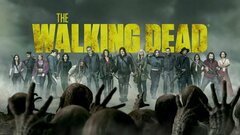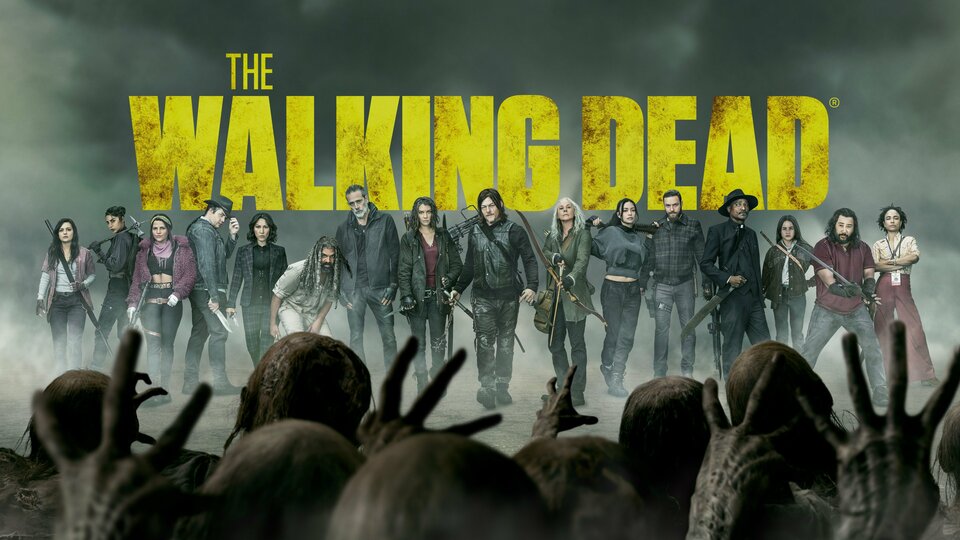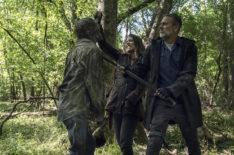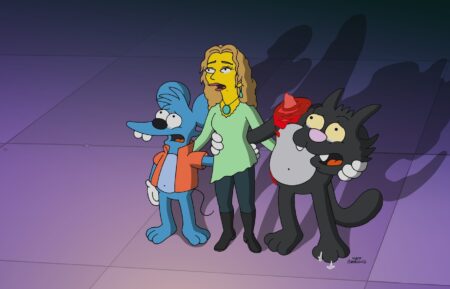The Dead Phenomenon: Looking Back on ‘The Walking Dead’s TV Legacy
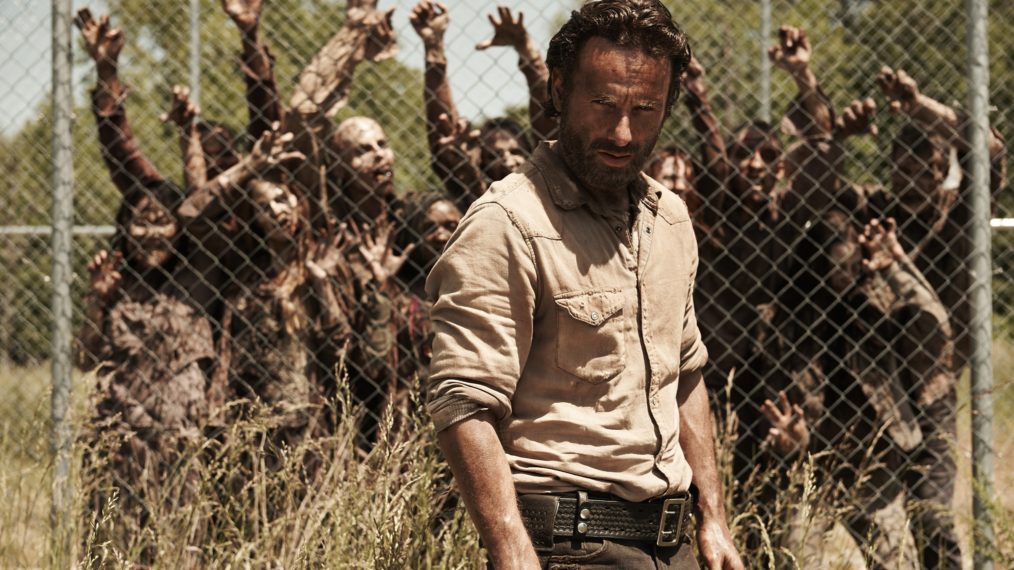
This is an excerpt from TV Guide Magazine’s The Walking Dead Universe Special Collector’s Issue, which is available for international pre-order online now at TheWalkingDeadMag.com and will be available nationwide on newsstands on Tuesday, August 17.
Before AMC’s The Walking Dead premiered on October 31, 2010, the end of the world as we know it had never looked so terrifying, gory, or gruesome. Eleven years and more than 150 heart-pounding installments later, The Walking Dead is still a frightening delight to behold — and its universe has grown into a globally beloved franchise.
In this fictional world (not unlike our own), based on Robert Kirkman’s popular comic book series, the apocalypse arrived in the form of a plague — shudder at the thought — that in this case turned people into the flesh-eating “undead” after they kicked the bucket. The series chronicles the epic story of a hardened and diverse group of people struggling to stay alive and eke out a meaningful existence. Ever since the show’s hero Rick Grimes (Andrew Lincoln) awoke from his coma, alone in the aftermath of a civilization-ending cataclysm in the series’ pilot, The Walking Dead has been a game-changing cultural juggernaut, an earth-shattering entry along the vast TV landscape.
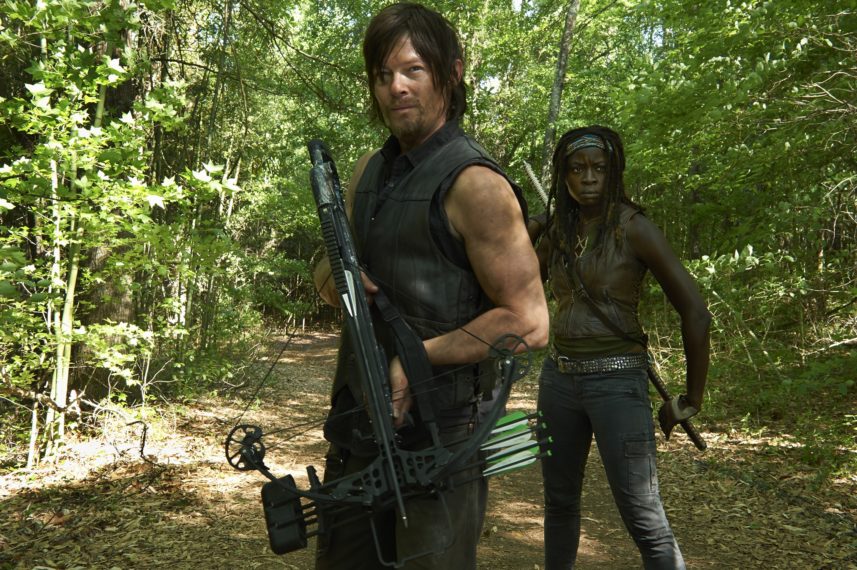
(Credit: Frank Ockenfels 3/AMC)
Dead’s production values set a new standard, with moody, cinematic visuals and a score by Bear McCreary that fostered a mounting sense of dread. The zombie makeup and prosthetics, from torn flesh to festering wounds, are still mind-blowing, masterfully overseen by special effects guru and exec producer Greg Nicotero (who learned his stuff alongside original zombie master George A. Romero, creator of the Night of the Living Dead film series).
The horror-fantasy gobbled up new viewers like walkers devouring the living, with record-setting ratings that rivaled the best of broadcast television (even outpacing Game of Thrones in its heyday). It was a hit in the Nielsens, pulling in an average of nearly 20 million viewers during its peak and often landing in first place in the coveted 18–49 demographic.
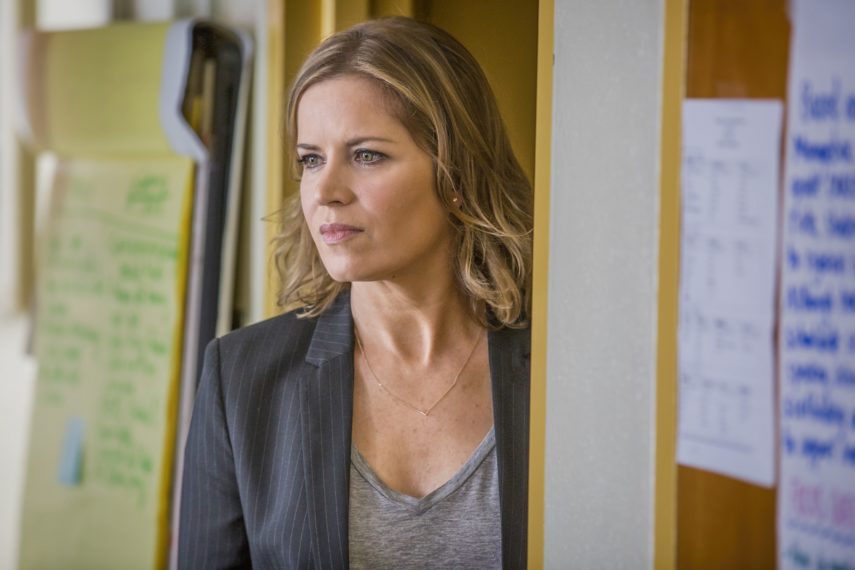
(Credit: Justin Lubin/AMC)
Indeed, the fandom is as rabid as the show’s ravenous zombies. The Talking Dead, a live aftershow starting in 2011 with comic host Chris Hardwick, became its own sensation, and thousands thronged to both Comic-Con and Dead-themed conventions, cosplaying as their favorite characters. As the show’s popularity soared, Dead spawned several spin-offs, including the (initially) Los Angeles–set Fear the Walking Dead in 2015, now heading into its seventh season, and limited YA series The Walking Dead: World Beyond in 2020. Two more incoming shows are set as well. And as the flagship heads into its 11th and final chapter (concluding in 2022), the ever-expanding universe will finally hit the big screen as a feature film franchise centered on Lincoln’s admirable Rick, last seen wounded in a 2018 episode.
As the first major zombie TV series, Dead’s cultural influence ranged far and wide. It ushered in a new wave of undead and monster-centric television, running the gamut from the spine-chilling to the cheeky — Z Nation, The Returned, In the Flesh, Santa Clarita Diet, iZombie, Black Summer, and others. And while the zombies were the most horrifying and immediate danger in the beginning, as Dead progressed, the real threat evolved into the still-living. Rick and his fellow heroes — crossbow-carrying Daryl Dixon (Norman Reedus), abused housewife turned pragmatic fighter Carol Peletier (Melissa McBride) and badass warrior Michonne (Danai Gurira) — often came up against other communities, some of them with nefarious intents. Villains from the megalomaniacal Governor (David Morrissey), a broken leader keeping his zombified daughter stashed in a closet, to the series’ latest baddie, the sociopathic Alpha (Samantha Morton) and her primal group the Whisperers, who disguise themselves by wearing the skins of the infected, keep viewers tuning in.
Is there any room for redemption on a show this brutal? One particularly barbarous big bad, Negan (Jeffrey Dean Morgan), always felt irredeemable. After all, he savagely executed cherished characters and enacted a reign of terror with his blood-soaked baseball bat. After years of imprisonment in the Alexandria outpost with Rick having spared his life, Negan reflected on his ruthless behavior and expressed remorse, then proved his loyalty by taking down the evil Alpha himself. Is Negan now a changed man? That question of transformation, a key theme of the series, will linger into this final season. But for The Walking Dead itself, there’s no doubt the franchise has altered the entire television terrain in a profound way — and we may never see the likes of it again.
The Walking Dead, 11th and Final Season Premiere, Sunday, August 22, 9/8c, AMC
From TV Guide Magazine
How 'Countdown' Recruited Jensen Ackles to Go Full 'Die Hard'
Countdown boss Derek Haas talks creating the character around Ackles, and the cast teases the “Avengers”-like team of the crime thriller. Read the story now on TV Insider.
